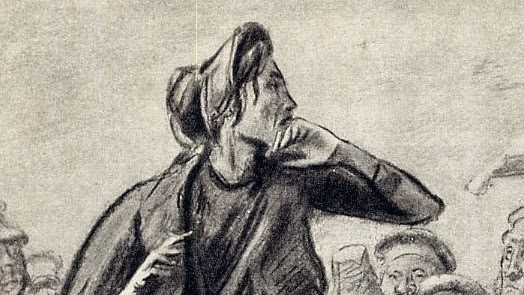Treating Madness with Reason
In Fyodor Dostoevsky’s famous novel Crime and Punishment Lebeziatnikov witnesses Katerina Ivanovna at her wit’s end. Katerina has consumption (tuberculosis) and recently lost her husband. Now she’s losing her sanity. Lebeziatnikov has heard of a solution: reason. But Katerina just won’t be convinced by any.
‘She has certainly gone mad!’ he said to Raskolnikov, as they went out into the street. ‘[T]here isn’t a doubt of it. They say that in consumption the tubercles sometimes occur in the brain; it’s a pity I know nothing of medicine. I did try to persuade her, but she wouldn’t listen.’
Lebeziatnikov claims that, although she is ‘out of mind’, Katerina can be restored from her madness if she listens to reason.
[W]hat I say is, that if you convince a person logically that he has nothing to cry about, he’ll stop crying. That’s clear. Is it your conviction that he won’t?
[D]o you know that in Paris they have been conducting serious experiments as to the possibility of curing the insane, simply by logical argument? One professor there, a scientific man of standing, lately dead, believed in the possibility of such treatment. His idea was that there’s nothing really wrong with the physical organism of the insane, and that insanity is, so to say, a logical mistake, an error of judgment, an incorrect view of things. He gradually showed the madman his error and, would you believe it, they say he was successful?
Sigmund Freud later wrote something similar. He described, for example, mourning to be curative. Our response to loss, as an experience, is a wishful psychosis from which the individual must eventually return to ‘reality’.
Perhaps, then, the state of mourning—in being treated as a cure to illness—can reason ‘psychosis’ away. I doubt it.
As for the unwell Katerina, successfully deploying reason on her also seems unlikely. Even Lebeziatnikov had his doubts.
Moreover, Katerina had reasons for her unreasonableness. Reason is a contradiction! The death of her husband, illness, poverty … How does one withstand such arbitrary wickedness? If Reason ever graced our lives, it deserted us long ago.

